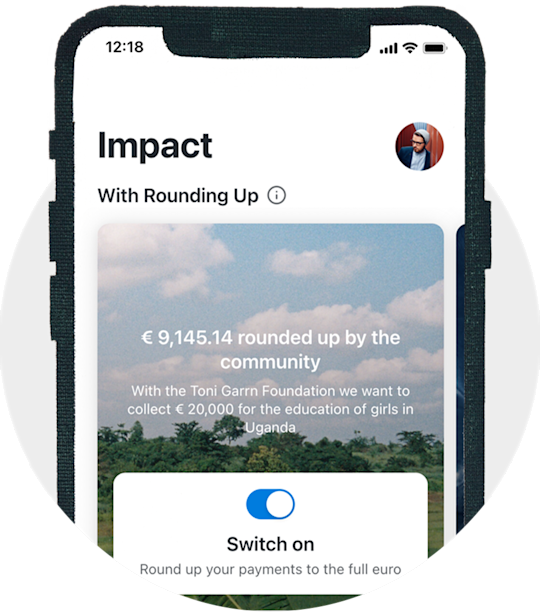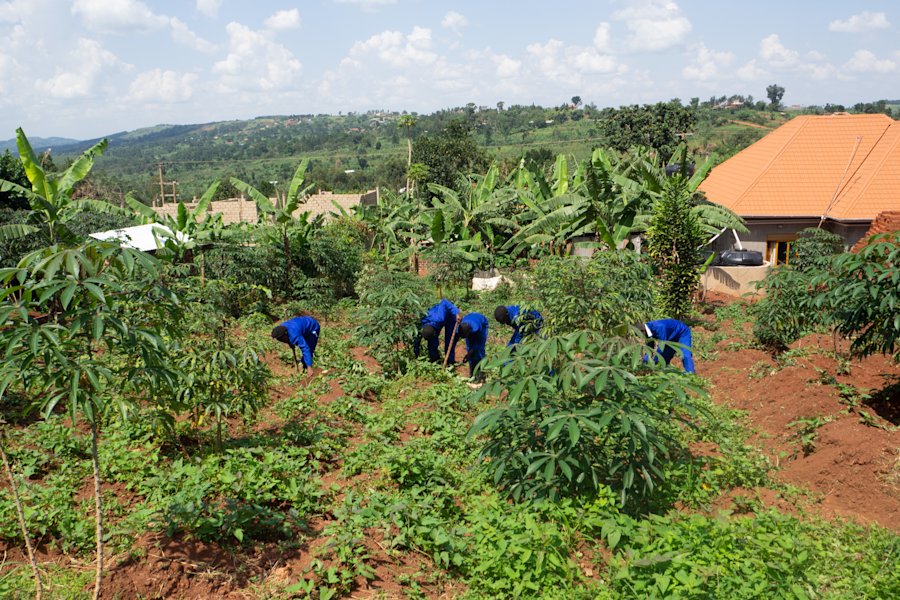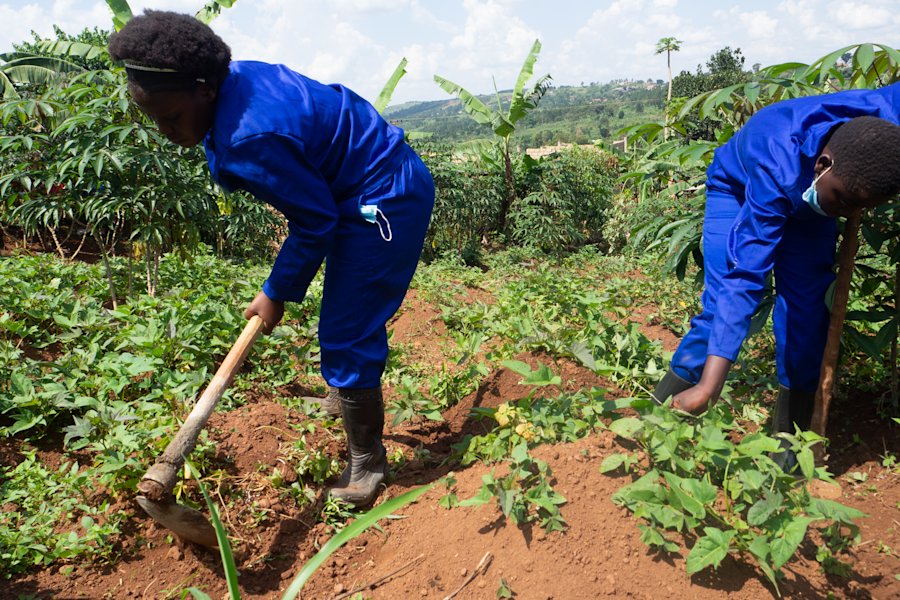With our new Rounding Up feature, you can now support projects for more climate justice every day! And the best thing about it: everyone just gives a small amount, but together we can make a huge impact. Read on to find out how it works and which project we have chosen to support first.
When talking about the climate crisis, there’s no getting around the topic of climate justice. Because while we are making the biggest contribution to the climate crisis here in the Global North, the people living in the Global South are suffering the most from its consequences.
That is why people and the planet are always at the focus of the projects we support, from rainforest protection to ensuring clean drinking water. By providing additional microloans to smallholder farmers in Peru, for example, or supporting the inhabitants of the Amazon to secure land rights in Brazil.
With a specific focus on climate justice, our new Rounding Up feature is another lever for positive change.
Round up small amounts and support climate justice
With the Rounding Up feature, we have developed a new way for you to easily channel money in the right direction and support climate justice. From now on, you can automatically round up the sum of every card payment to the full euro. We will then invest the difference in various projects, which we select in accordance with the strictest criteria.

Together we can make a big difference and promote solutions in the countries that need them most
The great thing is that just a few cents for each individual will make up a large collective sum that has a huge impact and can really bring about change. Find out what kind of changes and which projects the money will go to in the regular updates in our app.
Important: We are leaving it totally up to you whether you activate the feature or not. It’s not a must; just an offer to make another contribution to people and the planet as a community. You can also test the feature first and deactivate it at any time if you no longer wish to use it.
For our first project in Uganda, we are cooperating with the Toni Garrn Foundation. The focus here is on farmland and the education opportunities of young girls, who are particularly affected by the impact of the climate crisis.
The first project: more education and empowering young girls in Uganda
The Toni Garrn Foundation was established in 2016 with the goal of supporting girls and young women in Africa, thereby equipping them the with skills to improve their future prospects and open up new opportunities. And to do that, they have been working with the Abato Foundation in Uganda for a number of years now, which means that they have already made a number of reliable contacts there.
The Abato Foundation offers a low-cost private school, which provides a high-standard education to around 450 children from kindergarten to secondary school age. It is accessible to everyone, regardless of their religion and ability.
- Image 1

Most school pupils in the region come from farming families. The project should help to support them in continuing this profession in the long term. To do this, the Abato Foundation is looking for a new piece of farmland for the cultivation of fruit and vegetables and animal farming.
Using this land as an example, school pupils will learn to act economically and ecologically and to take responsibility for the project themselves. They will learn the necessary skills for this in the subjects ‘Geography & Agriculture’ and ‘Entrepreneurship’.
How education equals more climate justice
These education opportunities are particularly important for girls and young women as in times of crisis they are often the first ones who have to leave school to support the family at home. A solid education is also crucial for developing knowledge and skills that will enable the girls to adapt to the climate crisis, and also for creating sustainable employment. It also helps them to take responsibility for the environment and become actively involved in finding solutions to these problems in their communities.
Find out more about our new Rounding Up feature here.



